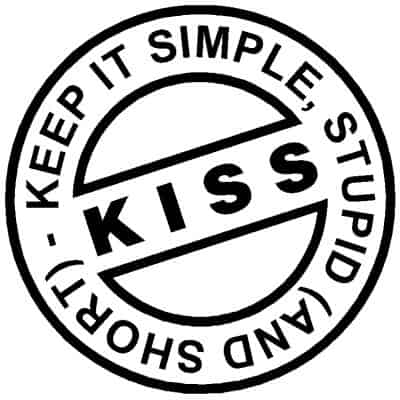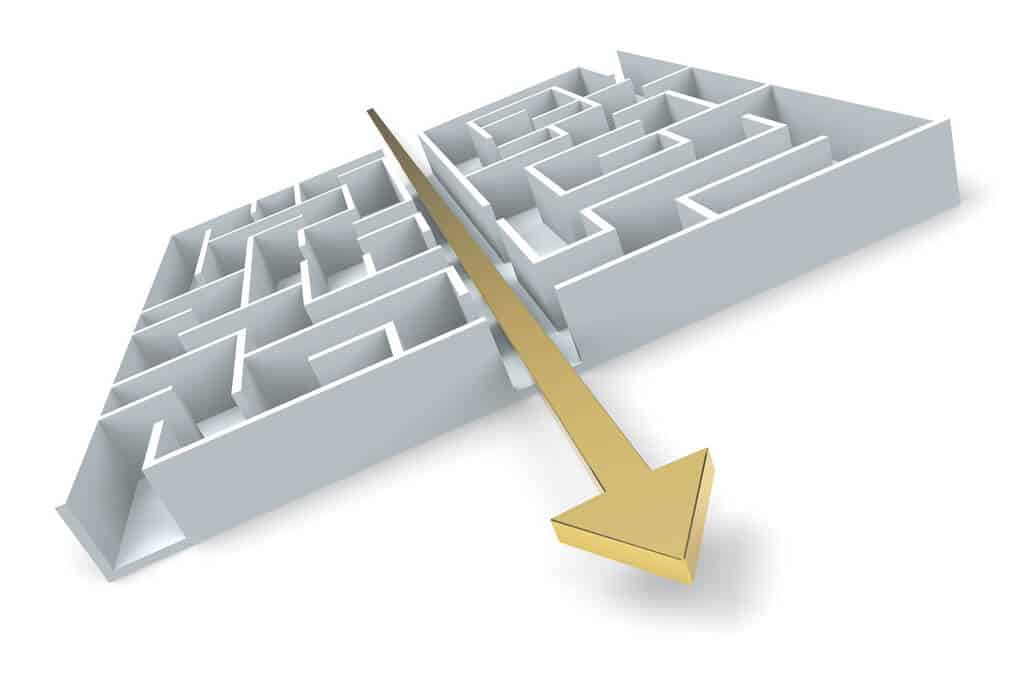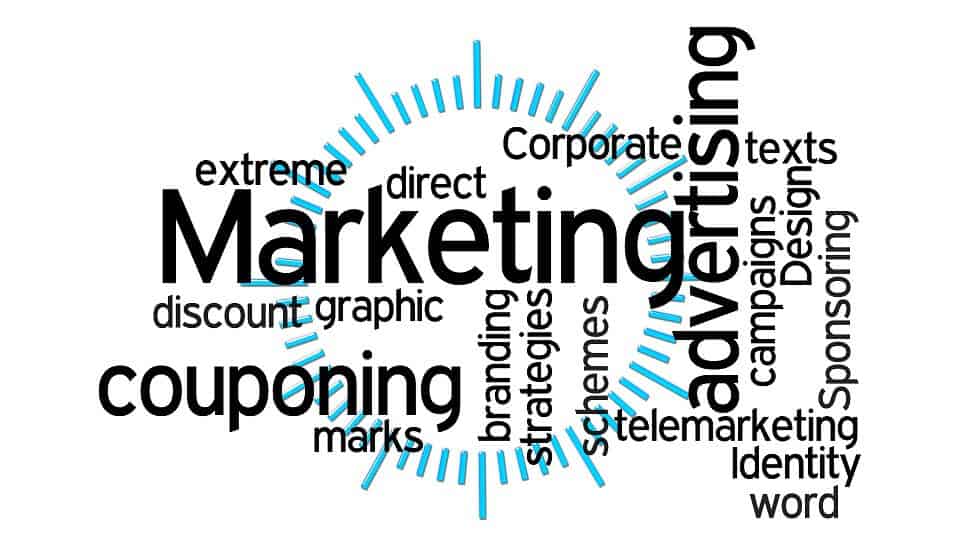
by Eric Dombach | How to Become a Business Coach
If you’re a beginning business coach, you know how difficult it can be to get your business off the ground.
But did you know…you’re not the only one?
I got an email recently from a long-time subscriber, a friend really, who shared some of the challenges she was facing with her business.
It’s not that she isn’t smart, or great at what she does (she’s brilliant, in fact).
It’s just that over time her business seems to have got more and more complex. She’s added little bits here and there, tried some new ways of marketing, tried some more…and eventually all those little extras have added up to “a real pig’s ear.”
The end result: she’s “fed up with being constantly shattered and not really getting anywhere…”
Here’s the thing that you must understand about this: we all go through it.
It happens to me.
It happens to all those experts who tell you business is easy if you just buy their magic system…
No one is immune.
It’s just that some people are brave enough to admit it.
And it doesn’t just happen when you’re starting up or struggling. Even if your business looks like it’s flying to the outside world; inside you can be running around like crazy wishing you could just escape somehow and enjoy life more.
I don’t have all the answers, I get this too.
Sometimes Simpler Is Better–for Beginning Business Coaches and EVERYONE
But what always helps me is simplification.
Whenever I find myself running around and constantly worn out I try to think about what I would do if I was starting again from scratch.
What’s the simplest business model I could use?
Frankly, it’s not my goal to build an empire and take over the world. Making a decent living, helping people and having fun is what I aim for.
So I don’t need some hugely sophisticated business. I suspect you don’t either.
For me, a simple model that works is to have something free to give away to get email subscribers, then to send some of my best tips and ideas by email on a regular basis and to offer a product that will help people implement my ideas and get great results from it.
I don’t get any massive windfalls through that model. No sexy product launches or big paydays. I doubt it’ll ever make me a gazillionaire.
Just a steady stream of satisfied clients and happy subscribers who appreciate what I do.
When I add extras and bells and whistles to that model, I get better results.
But I also add complexity and work. Over time I get seriously diminishing returns.
And my time and sanity mean a lot more to me than the extra money.
When I add extras and bells and whistles to my business model, I get better results. But I also add complexity and work. Over time I get seriously diminishing returns. And my time and sanity mean a lot more to me than the extra money.
So every now and then I do the exercise of thinking “what would I do if I had to start from scratch?”
Every time I come up with a slightly different answer (after all, I’ve learned new things and grown since I last did the exercise). But every time the answer is much simpler than the muddle I’ve ended up with.
I think that’s healthy. I don’t think we should be afraid to admit when we’re getting overwhelmed. Most of us aren’t gurus peddling an image of an easy life on a beach working just a few hours a day.
In the real world, we all get stressed and overwhelmed.
And going back to basics helps us all–beginning business coaches and seasoned professionals alike.
If you’re ready to get your business coaching practice off the ground, check out or FREE ebook, How to Become a Business Coach–a step-by-step guide for keeping it simple and building a profitable practice.

by Eric Dombach | Business Coach Training
It’s the time of year when everyone is thinking about personal development. So could I give you my favorite tip for personal development for business coaches?
It’s deceptively simple, but incredibly important: get enough sleep.
Forget the average; you know how much sleep you need to get enough rest for peak performance the next day. For me, it is about 8 hours, give or take a half hour. Nine is too much, seven is adequate in a pinch, and with six or fewer I’m dragging the next day.
Now here’s the secret of this tip: always get the hours of sleep you need on every night when the next day is a full work day.
Sounds easy, but most people don’t do it.
Here’s how I ensure adequate sleep for maximum productivity, and some of these ideas may work for you too:
1–I believe in early to bed, early to rise.
Why?
When you get up early, by the time 9am rolls around, you’ve already done a pile of work. So the pressure is off.
On the other hand, if you delay doing the work until night, you may get distracted and never get to it at all.
Because I need about 8 hours, I go to bed around 10pm, and rise and start working at 6am.
2–Don’t go out weeknights.
With rare exception, I do not go out weeknights — no meetings, no bowling, no poker game, no activities outside the home of any kind.
When you go out, it is likely you will not go to bed until late, which will adversely affect energy and productivity for the next day.
3–Don’t eat too late.
A big meal too close to bedtime can cause you to sleep poorly and not feel well.
(Overeating in general makes you lethargic.)
4–Always make sure you get your full sleep.
On the rare occasion when circumstance forces me to go to bed later than my normal time, I also — unless my schedule absolutely makes it impossible — get up later.
I hate starting late. But working without enough sleep would cut into my productivity by reducing my energy and efficiency, so the net output would be even worse.
I hate starting late. But working without enough sleep would cut into my productivity by reducing my energy and efficiency, so the net output would be even worse.
5–Don’t forget to prepare tomorrow’s list of things to do tonight.
At the end of the day, I prepare to-do lists — and post them on my bulletin board before shutting down for the night.
If you don’t, you risk thinking, worrying, and ruminating about work and all you have to do.
I also place the file for the first task I will do tomorrow on a stand next to my desk.
This way, I can start working the instant I step into the office the next morning — and I like a quick start.
(By the way, I wasn’t always this way. I used to be a terrible insomniac — but I overcame it. To get more tips on getting a good night’s sleep, each and every night, click here now: www.overcominginsomnia.com)
Of course, getting a good’s night’s rest is only one of several important strategies for personal development for business coaches. For more great info on getting your head right, and your business organized effectively, check out our FREE ebook, Secrets of a Business Coaching Rock Star.

by Eric Dombach | Business Coaching Tools
Here’s a fantastic simple sales tip for business coaches:
You’ve probably heard the “only handle it once” principle in productivity where you should strive to only handle paperwork or emails one time and deal with them fully rather than keep returning to them and doing a crappy job each time. I’ve found a similar principle to apply to sales and marketing, too. In fact, one of my favorite principles is “Work Hard Once”–a phrase I first heard from Taki Moore.
I was reminded of the principle when I ran a webinar for Momentum Club members recently on follow-up systems. Follow-up is a great example of “Work Hard Once.”
What normally happens with follow-up is we do a Complimentary Coaching Session or another kind of sales meeting. We know we should be following up–after all, the majority of sales takes multiple contacts before your potential client is ready to buy.
But more often than not, we try to “wing it” with follow-up.
We have the meeting and the next day we think, “What should I do to follow-up?” And we shoot off an email or something.
Then if we’re lucky, a couple of weeks later we remember the meeting and realize we’ve not heard back. So we try to think of something else we can do to keep in touch. If we’re pushed for time, we often end up with another email saying, “Just checking up” or “Have you made a decision yet?”
Hardly the kind of inspiring follow-up that will build credibility and strengthen our relationship.
Why This Happens–And What to Do Instead
The problem is that we’re trying to do important stuff like this on the fly when we’re busy. So we do a half-arsed job of it.
It’s inevitable when we’re under pressure. No one does their best creative thinking when they’re pushed for time.
What we need to do is have the strength to take time out every now and then to do our important thinking. To “Work Hard Once” on creating a template or process that we can then tweak and re-use again and again.
In this case, we should brainstorm the different situations where we’re likely to need to follow-up and then create some decent templates (emails, ideas for phone calls, letters, or other to-do’s) that we can reuse with minor tailoring every time we get into those situations.
Work Hard Once to come up with a great template, then use it time and time again. Rather than reinventing the wheel (badly) every time.
Work Hard Once to come up with a great template, then use it time and time again. Rather than reinventing the wheel (badly) every time.
What are the sales and marketing tasks you do again and again that would benefit from taking time out and creating templates so that you do them brilliantly every time without having to rethink everything?
Work Hard Once on these and you’ll be repaid many times over.
For other fantastic sales tips for business coaches, as well as a comprehensive marketing and coaching system, get a FREE 30-day trial of our comprehensive business coaching system!

by Eric Dombach | How to Become a Business Coach
If you’re just starting out as a business coach (or maybe if you’ve been one for a while!), you’ve probably felt a bit overwhelmed at how much it seems you have to learn, and how much it seems you have to do if you want to get a steady flow of clients. That’s why I want to share some marketing basics for beginning business coaches.
You see, the world is full of people desperate to sell us their latest new trick, hack, or tool that will win us more clients at the drop of a hat. And they need us to think that everything we’ve done in the past is out of date and we need to get their shiny new thing instead.
And it’s true that tools and techniques do need to evolve over time.
But in order to know what will work for you, you need to have a really solid foundation in place. And that’s something most people don’t have.
In order to know what will work for you, you need to have a really solid foundation in place.
So they jump from shiny new object to shiny new object because they don’t have a way of knowing what’s actually important to their business and what’s going to make a real difference.
So What Are the Marketing Basics for Beginning Business Coaches?
In my business, I’ve found there 4 key activities you need to focus on to succeed in getting that steady flow of leads and clients going. And I’ve found the same activities work for my clients too.
The first activity is something you do yearly or quarterly. It’s to get Focused.
Focus is about zeroing in on your ideal clients, building deep understanding of their problems, challenges, goals and aspirations, and creating a compelling USP that helps you stand out in the market.
Getting focused simplifies everything in your business. It means you have a message that hits the spot for your ideal clients and you just “know” instinctively what and how to communicate.
Lead Generation is the first practical step to building a flow of new clients. It’s where you make that vital first contact and give “value in advance” to start building your authority with potential clients.
This is where the “shiny new objects” tend to distract us, because this is often the hardest part of marketing for most people. So this is where we have to be the most careful.
It’s not like the people telling us about their fantastic new approach are deliberately misleading us (well, not in most cases). It’s more that what works for them simply won’t work for you because they’re in a different market to you with different clients and different skills and resources.
That’s why figuring out your focus is so vital: it steers you to the right lead generation approaches that will work for you. I advise sticking to one main approach you can master, and then having one approach you’re testing out but not reliant on.
Next is Ongoing Nurture. Since the vast majority of potential clients won’t be ready to hire you when you first contact them, you’ll need to keep in regular contact to build credibility and trust.
If you work with a small number of clients at any time, this can often be done personally (though I’d advise being systematic about it). For larger numbers of prospects you’ll need to automate more and this is where email marketing comes in.
Finally, you need to Win Clients. That means turning those nurtured relationships into paying clients. And to do that you need a method for getting into sales conversations with clients and for handling those conversations.
Go with the FLOW
Four areas: Focus, Lead Generation, Ongoing Nurture, Win Clients. It’s no coincidence they spell FLOW.
As long as you have one solid approach in each area, you’re good to go. No need for shiny new objects or continually flip-flopping trying to find the next big thing. It’ll simply work.
And the truth is that when you have all four areas working together, you don’t need to be exceptional at everything. Doing one area really well is enough.
So if you’ve focused on the perfect ideal client and have a really strong USP, the rest of your marketing can be pretty average and you’ll do OK.
Have a fuzzier market definition and “OK but not great” lead generation? If your Ongoing Nurture is brilliant you’ll still be fine.
You don’t need to be brilliant at marketing to get a steady flow of clients. Just make sure you have a strong FLOW-based system with each of the components working well.
By the way, if you want to get my very best training on FLOW and a “library” of marketing strategies you can use at each step to get you going fast, then take Momentum Club for a 14-day test drive for just $1. Or, for more basics for beginning business coaches check out Eric’s FREE ebook, How to Become a Business Coach.

by Eric Dombach | Business Coach Training
I have worked with many coaches in my business life. Many of them told me what to do, as coaches should, but I later found that they did not live and work by the very guidelines they gave me. If you want to establish authority as a business coach, you need to be a good example.
When I decided to become a coach, I decided that I needed to be sure to “walk the walk.” This means I will never ask a client to follow an instruction, use a tool, or act according to a guideline that I wouldn’t do myself.
In the process, I gain both confidence and credibility. There’s a power that comes with teaching your clients something that you know for yourself works. Walking the walk empowers you to ‘talk the talk’ with confidence and establish authority as a business coach with your clients.
Choose a Niche
Another way to establish authority as a business coach is to choose a niche–particularly if it’s an area where you already have expertise and experience. If you’re experienced in the retail business, you might thrive coaching retail business owners. This will help you walk the walk. You’ll be able to give them advice from real-life experience, asking them to use tools that have already worked for you.
If you’ve walked the walk for years, there is very little reason for them to doubt you.
The Trust-Shattering Effect of Hypocrisy
Before I became a business coach myself, I owned a small business. One of my business coaches gave me two vital documents: a One-Page Strategic Plan and a weekly coaching agenda. My coach held me accountable and made sure I filled them out every week. He did not accept any excuses or let me have any.
Later, I found out that he had never used those documents himself. I also discovered that he didn’t submit his reports to his franchisor on time. Often, he missed submitting them entirely.
Seeing my coach slack off affected my confidence in him. I began to slack off on the tasks myself. Soon enough, our relationship began to deteriorate. Just a few days later, I decided to terminate the coaching agreement.
Seeing my coach slack off affected my confidence in him. I began to slack off on the tasks myself. Soon enough, our relationship began to deteriorate. Just a few days later, I decided to terminate the coaching agreement.
Having this experience, I made the decision right then that if I ever become a consultant or coach, I would walk the walk. To this day, I still use these documents. With confidence, I expect my clients to do the same.
‘Walk the Walk’ and show your clients that you do. Never assume that they know you do it–use phrases like, “Speaking from experience” or share stories from your own business life as illustrations of these principles in action. When you do, your clients will have confidence when you ‘talk the talk.’
For more skills and strategies to help you walk the walk and talk the talk, check out our FREE ebook, Secrets of a Business Coaching Rock Star.





